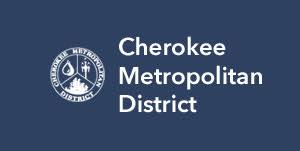In Part 1, last month, I presented some of the basics to the 2006 Pension Protection Act. In this month’s article are additional highlights and conclusion.529 Plan withdrawalsA law set to sunset in 2010 that made withdrawals from 529 college savings plans tax exempt has been made permanent. Withdrawals must be used for education-related expenses, such as tuition, fees, room and board, books, supplies and equipment. Unlike Uniform Gift to Minors Accounts (UGMAs), the funds in a 529 plan stay with the account owner, i.e. parent or grandparent, and do not automatically transfer to the child or grandchild at 18. So you can make sure your hard-earned dollars really do go toward tuition, fees, room and board, books, supplies and equipment – and not pizza at the frat house.Charitable contributionsDuring 2006 and 2007, IRA holders over age 701/2 can donate up to $100,000 directly from their IRA to a nonprofit without paying income tax on the distribution. The act cracks down on individuals who dump items at charity thrift stores and deduct the items’ worth by requiring that donated clothing or household goods be in good condition. Taxpayers who inflate appraisals of property donated to charity may not only see their deduction decrease or disappear but also will be subject to penalties.Pension ProvisionsIf you participate in a pension plan, also known as a defined benefit plan, you may be concerned about its future funding in light of notable corporate failures like Enron and WorldCom. As its name implies, a large section of the Pension Protection Act focuses on bolstering existing defined benefit plans by establishing required funding levels and protecting employees from the abrupt abandonment of pension plans.The termination of several large plans in the past year shook confidence in the Pension Benefit Guaranty Corporation. Created in 1974 by the Employee Retirement Income Security Act, PBGC acts as an insurer for private-sector defined benefit pension plans. Not funded by taxpayers, PBGC collects insurance premiums from participating employers, earns money from investments and receives funds from pension plans it takes over. PBGC pays monthly retirement benefits to about 683,000 retirees in 3,595 pension plans that have ended.The act takes aim at employers who fail to set aside enough reserves to cover current and future pension obligations by defining plans less than 70 percent funded as “at risk”. To discourage employers from changing plans to meet their funding level, rather than changing funding to meet plan needs, the act prohibits plans less than 80 percent funded from increasing benefits, adding new benefits, changing the benefit accrual rate or changing the vesting rate. Plans that are under funded must notify their participants.Employers with fewer than 25 participants in a defined benefit plan received the dual incentive of simplified reporting and safe harbor provisions that grant the Treasury full authority to change IRS decisions regarding taxes, penalties or sanctions for plan mistakes, with special attention to the concerns and circumstances of small businesses.The act creates a hybrid defined benefit and defined contribution plan for employers with fewer than 500 workers where the assets are held in a single trust.Partial retirementPension plans may now make distributions to employees over age 62 who have not yet ended their employment. This could allow older workers to phase-in their retirement by working part-time while receiving pension benefits to make up the difference in wages.Military, reserve and public safety officersThe act provides special consideration for our active and reserve military as well as public safety officers, such as law enforcement, firefighters and emergency medical professionals. Public safety officers over age 50 avoid the 10 percent premature-distribution penalty for distributions due to separation from service. They also may defer up to $3,000 a year of retirement income to use pretax dollars for health or long-term care benefits. Reservists called for duty for more than 179 days between Sept. 11, 2001, and Dec. 31, 2007, also avoid the 10 percent early withdrawal penalty.ConclusionThese highlights represent just some of the many items included in this important piece of legislation. Your financial professional can help you determine how the changes contained in this act may impact your personal retirement strategy. For complete information on these provisions and their tax implications, please consult your tax professional.Colorado Comprehensive Wealth Management719-886-3377Registered Investment Advisory RepresentativeSecurities America Advisors Inc.Member NASD, SIPCFor more information, visit www.donnellservices.comColorado Comprehensive Wealth Management and Securities America Advisors Inc. are independent companies







